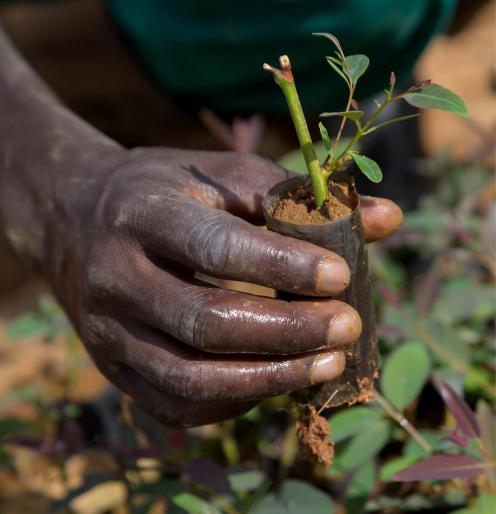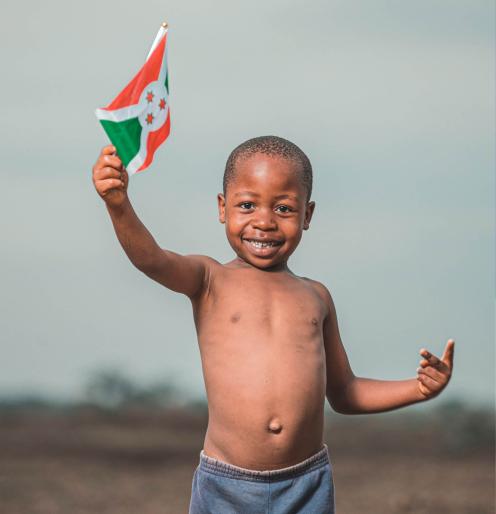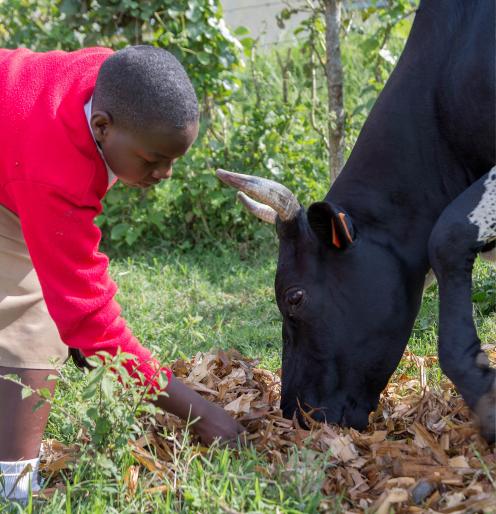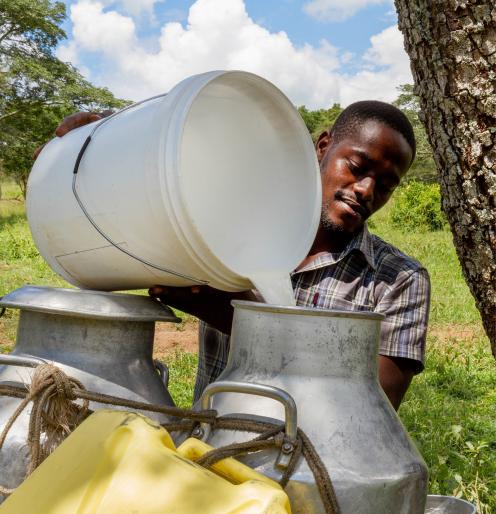Burundi
In Burundi, World Food Programme (WPF) runs a school feeding programme financed by the Dutch Ministry of Foreign Affairs. In Bubanza, Cibitoke and Rural Bujumbura provinces the need is high: Burundi’s food security is one of the lowest here, and nutrition is inadequate. Here the project provides vulnerable school children with healthy and nutritious school meals. The children also learn about healthy food, which they grow in school vegetable gardens. This knowledge they spread to their parents, siblings and the rest of the community.
By purchasing food crops from local farmers and assisting them with farm planning and post-harvest measures, the programme also helps local farmers increase their incomes and improve their farm management. In this way, the programme stimulates local agricultural development as well.


Uganda
In Uganda, Dutch NGO SNV provides about 200,000 school children with school milk. The project was initiated in 2016 in dairy-rich South West Uganda, where malnutrition is high, but milk is widely available. After SNV partnered with the Ugandan Ministry of Health and the Ministry of Education and Sports, the programme was rolled out on the national level. Although the Netherlands Embassy in Kampala provides a financial contribution, the programme’s real champions are the children’s parents. For a small fee, their children receive milk mixed with porridge at school.
In 2018, SNV teamed up with another Dutch NGO, Yoba for Life, to expand the programme to include nursery schools. Based on the same parent-funded principle, nursery school children receive a special pro-biotic yoghurt which helps them increase their immunity.
Just like in Burundi, in Uganda school milk and yoghurt contribute to the development of the entire community. While children receive healthy nutrition, the embassy helps local dairy producers unlock their full potential.


India
In India, Dutch NGO Solidaridad partners with the Indian and Dutch government, Dutch multinational East-West Seed and other Indian partners to work on the food security of Madya Pradesh’s poorest. Through a government nutrition security programme, they provide school children with hot and healthy soy-based mid-day meals. Protein-rich and affordable, soy-based nutrition helps school children not just get through the day, but flourish at school. And at the same time, the programme creates awareness of the health-benefits of soy products and fresh vegetables.
In addition to combatting malnutrition among children and other vulnerable groups, the project also aims to support smallholder farmers by providing them with access to seeds, technology and training. Like in Burundi and Uganda, feeding school children goes hand in hand with community development.

